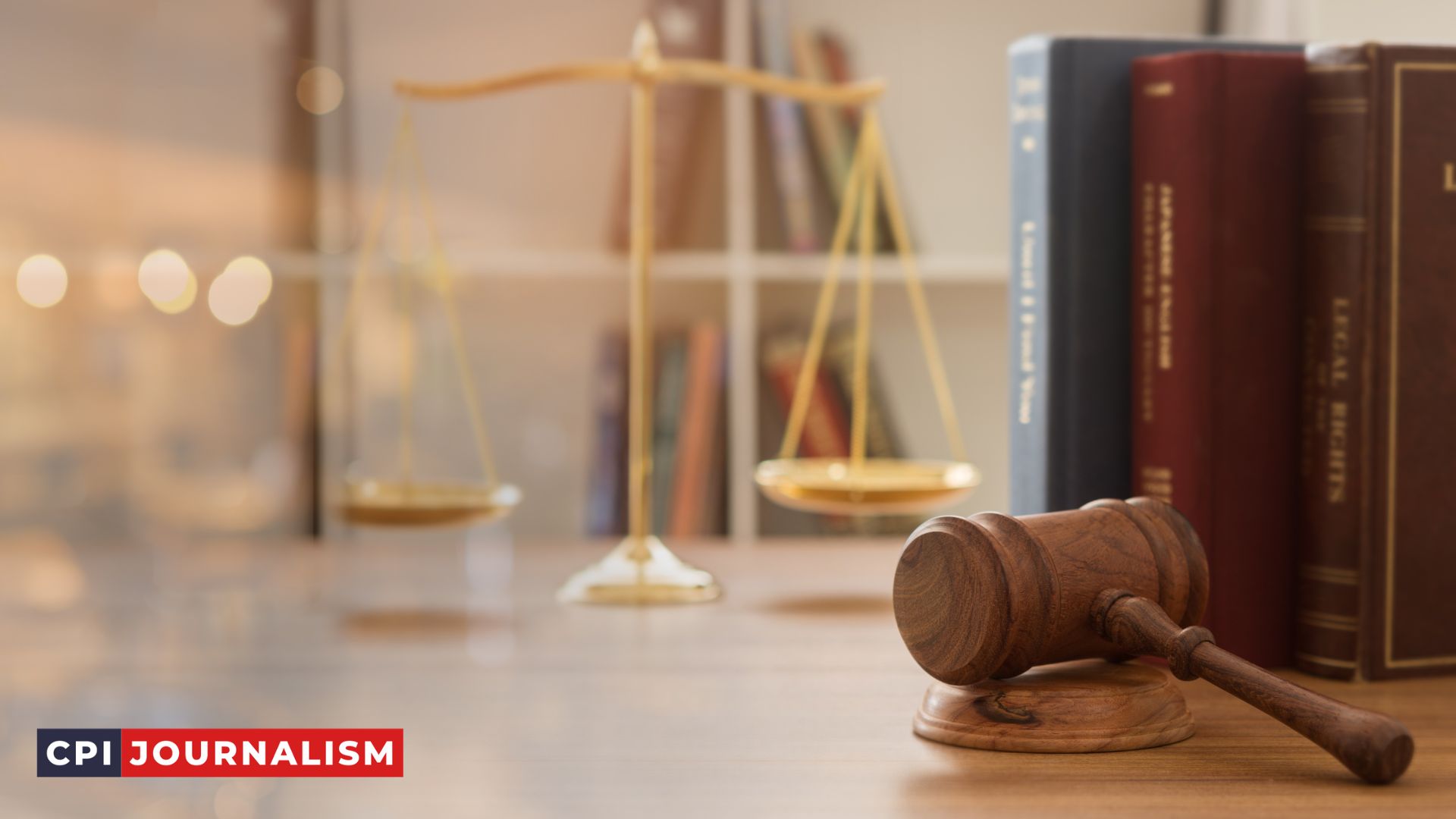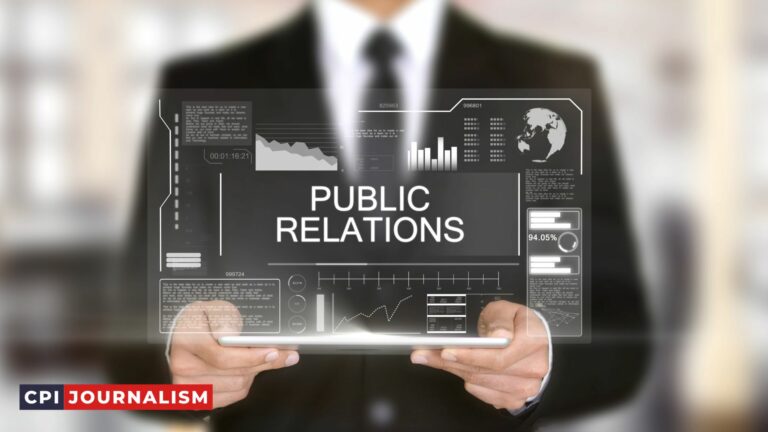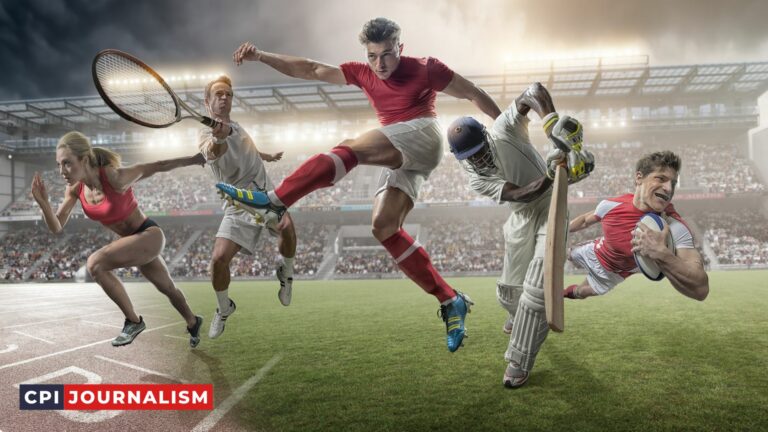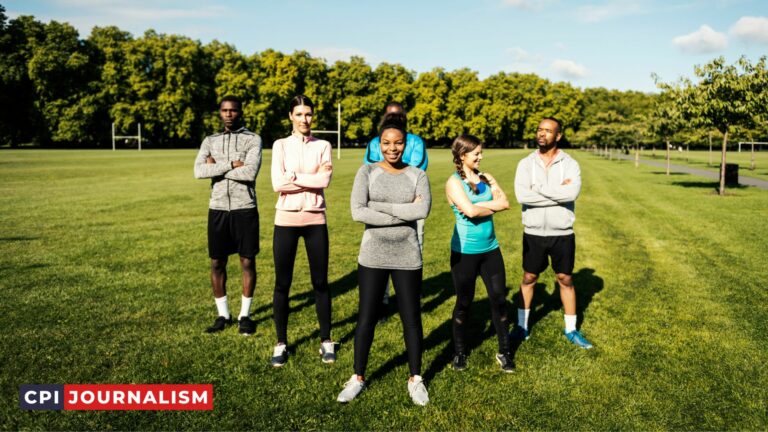What Are The Legal Considerations For Sports Journalists?
As an experienced journalist, I am here to share my wisdom, experience, and expertise with upcoming journalists about the legal considerations for sports journalists.
I understand how important it is to be aware of the legal implications of the content you are writing, especially when it comes to sports journalism.
This article aims to provide an overview of the legal considerations that sports journalists need to take into account when producing content. We will discuss issues such as defamation, copyright, and potential criminal liability, as well as the protections that journalists have in place.
By understanding the legal implications of your writing, you can ensure that your work avoids any potential legal pitfalls.
A. Overview of Legal Considerations for Sports Journalists
As a sports journalist, it is important to understand the legal considerations for reporting on sports-related topics. Without a proper understanding of the laws and regulations governing the profession, a journalist can be exposed to significant legal liability.
The following is an overview of the legal considerations that all sports journalists should be aware of when reporting on sports-related topics.
First and foremost, it is important to be aware of copyright laws and how they apply to journalists. Copyright laws protect the work of authors and journalists, including photographs, video, and written works.
It is important to understand the copyright laws in your jurisdiction, as they will vary from place to place. Additionally, if you are using copyrighted material in your work, it is important to secure permission from the copyright holder before publishing.
Second, journalists must also be aware of defamation laws. Defamation laws protect people from having their reputations or character unjustly attacked through written or spoken word.
It is important to understand the defamation laws in your jurisdiction, as they will vary from place to place. Additionally, it is important to make sure that any statements you make about an individual or entity are accurate and truthful.
Third, journalists should also be aware of privacy laws. Privacy laws protect individuals from having their private information disclosed to the public.
It is important to understand the privacy laws in your jurisdiction, as they will vary from place to place. Additionally, it is important to make sure that any information you disclose about an individual is necessary and relevant to the story you are reporting on.
Finally, it is important to be aware of the various laws and regulations that apply to sports journalists. These laws and regulations may include requirements for keeping records, filing reports, and other regulatory requirements.
It is important to understand all of the legal considerations that apply to sports journalists in your jurisdiction, as they will vary from place to place.
By understanding the legal considerations for sports journalism, journalists can better protect themselves from legal liability. Being aware of the laws and regulations governing the profession will also ensure that journalists are reporting in an ethical and responsible manner.
II. Copyright Law
As a sports journalist, it is important to be aware of copyright laws. Copyright law protects the creative works of authors, musicians, artists and other creators from unauthorized use.
When publishing content, it is important to make sure that any content that is not your own is properly credited or licensed.
When using photos or other visuals, it is important to make sure that permission is obtained from the copyright holder before using any content. Using visual content without permission could result in legal action.
Additionally, when using quotes and excerpts from other sources, make sure that proper attribution is given. This includes providing the source of the quote, as well as the author or creator.
When creating content, it is important to make sure that your work is properly copyrighted. Registering your work with the United States Copyright Office will provide legal protection for your work.
This protects your work from being copied or reproduced without permission. Additionally, if your work is copied or reproduced without permission, you can take legal action against the infringing party.
As a sports journalist, it is important to be aware of copyright laws and to make sure that any content you use is properly credited or licensed.
Additionally, it is important to make sure that your work is properly copyrighted to ensure that it is protected from unauthorized use.
A. What Is Copyright Law?
Copyright law is a legal concept that provides creators of original works with the exclusive right to reproduce, distribute, perform, display, and create derivative works based on their original works.
This right is granted automatically to authors and inventors when their original works are created, and it is protected by copyright law. Copyright law also provides creators with protection from unauthorized use of their works by others.
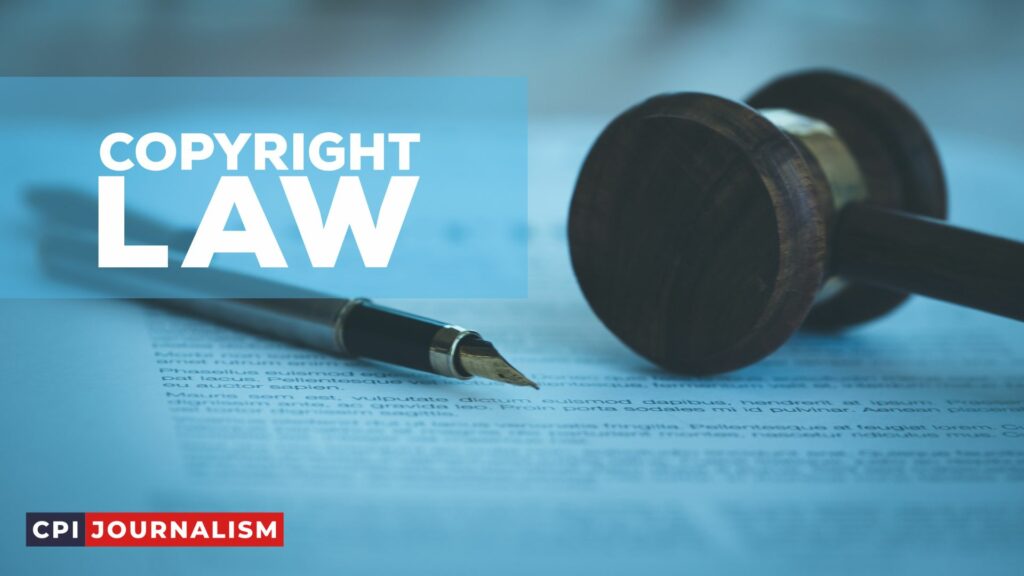
It prohibits the reproduction, distribution, or performance of copyrighted works without the permission of the copyright holder. Copyright law also allows for the enforcement of the exclusive rights it grants to creators and provides for remedies for those who violate these rights.
Copyright law is an important tool for protecting the rights of authors and inventors, and it is essential for encouraging creativity and innovation.
B. How Does Copyright Law Affect Sports Journalists?
As a journalist, it’s important to understand how copyright law can affect your work. As a sports journalist, this is especially important, as you’re regularly dealing with photographs, images, and other written works that you may need to use or reference in your reporting.
Copyright law gives the creator of an original work exclusive rights to it, which means that anyone else who wants to use it must get permission from the creator or pay a fee.
This includes journalists, who must obtain permission to use copyrighted material, such as photographs, in their work.
It’s important to be aware of copyright law when researching and writing stories, especially when you’re using photographs or images to illustrate your story.
You must make sure that you have the rights to use any material in your work, otherwise you could be liable for copyright infringement.
In addition to getting permission from the creator of the work, you should also make sure that any material you use is properly attributed.
This means that you should always credit the creator when using their work, and you should never use someone else’s work without their knowledge or permission.
As a sports journalist, it’s important to be aware of copyright law and how it affects your work. Not only can it help you avoid legal trouble, but it can also help you ensure that you’re giving credit where it’s due.
C. Examples of Copyright Infringement By Sports Journalists
Copyright infringement is a serious issue for sports journalists and one that should be taken seriously.
Here are some common examples of copyright infringement by sports journalists that could lead to legal repercussions:
1. Using copyrighted images without permission: Sports journalists often use images to supplement their stories, and it is important to ensure that these images are not copyrighted. If a journalist uses a copyrighted image without permission, they could be liable for copyright infringement.
2. Quoting copyrighted material without permission: Quoting copyrighted material without permission is another common example of copyright infringement by sports journalists. Even if a journalist is quoting a small portion of the copyrighted material, they must still obtain permission from the copyright holder first.
3. Posting content without permission: Sports journalists often post stories to their website or blog, and it is important to ensure that any content posted does not infringe on another person’s copyright. Posting content without permission can lead to copyright infringement and legal repercussions.
4. Sharing content without permission: Sharing content with others without permission is also a form of copyright infringement. Even if the content is shared for free, it is still important to obtain the permission of the copyright holders first.
These are just a few examples of copyright infringement by sports journalists that could lead to legal repercussions. It is important for sports journalists to be aware of copyright laws and to obtain permission before using or sharing copyrighted material.
This will help ensure that they are not liable for copyright infringement.
Right Of Publicity
As a sports journalist, it is important to understand the concept of right of publicity. This right protects an individual’s name, likeness, and other personal attributes from being used in commercial activities without permission.
This right is important to consider when a journalist is writing about a person, especially when the story could be used to attract attention and generate revenue.
For example, if a journalist is writing a profile on an athlete and they use the athlete’s name, likeness, or other personal attributes without permission, the athlete could sue for invasion of privacy.
Similarly, if a journalist is writing a story about a celebrity and includes their name or likeness in the story without permission, the celebrity could have a claim for right of publicity.
In most cases, journalists should always seek permission from the individual before including their name or likeness in a story. If permission is not obtained, the journalist should use generic terms such as “the athlete” or “the celebrity” to avoid any potential legal issues.
It is also important to note that the right of publicity can be protected in different ways depending on the jurisdiction.
In the United States, for example, the right of publicity is often protected under state laws, while in other countries, it may be protected under trademark law or by associating the person’s name with a product or service.
In short, it is important for sports journalists to understand the concept of right of publicity and always seek permission before using an individual’s name or likeness in a story.
Additionally, journalists should be aware of the potential legal implications in different jurisdictions and take steps to protect the individual’s right of publicity.
A. What Is The Right Of Publicity?
The Right of Publicity is a powerful legal right that guarantees an individual’s right to control the commercial use of their identity.
It protects against the unauthorized use of a person’s name, likeness, or other identifying characteristics for commercial purposes, such as endorsements, advertisements, or trade.
As an experienced journalist, I can tell you that this right is incredibly important for protecting the privacy and personal rights of individuals, especially celebrities and public figures.
The Right of Publicity gives individuals the power to decide how, when, and where their image is used in commercial contexts. When a person’s Right of Publicity is violated, they may bring a lawsuit against the offending party for damages.
The extent of damages can vary, but usually includes any profits the offender may have gained from exploiting the individual’s identity.
The Right of Publicity is a key element of media law and continues to evolve along with the changing landscape of media.
In the age of social media, celebrities and public figures are more exposed than ever before, and it’s important to understand their right to control the use of their image.
As a journalist, it’s important to always be mindful of the Right of Publicity and make sure that the people you’re writing about are given the legal protection they deserve.
B. How Does The Right Of Publicity Affect Sports Journalists?
As a sports journalist, it is important to be aware of the right of publicity, as it affects your work in many ways. The right of publicity is the right of an individual to control the commercial use of their name, image, likeness, or other aspects of their identity.
This right is widely recognized in the United States and is held to be a property right by many states.
For sports journalists, this means that you must be mindful of how you use the names, images and likenesses of athletes, coaches and other individuals in your stories and broadcasts.
If you use these elements without permission, you may be liable for damages or other legal action taken by the individual.
For example, if you use an athlete’s name or image in a story or broadcast without their permission, even if it is in a newsworthy context, you may be liable for damages.
Similarly, if you use an athlete’s likeness in a promotional video or advertisement, you will need to obtain their permission in advance.
When covering sports, it is important to be aware of the right of publicity and take appropriate steps to ensure that you are not infringing on the rights of the athletes, coaches and other individuals involved.
By understanding this right and adhering to it, you can ensure that you are creating ethical and legally compliant content.
C. Examples of Right of Publicity Violations by Sports Journalists
Sports journalists can unknowingly violate the right of publicity when featuring athletes, teams, and other sports figures in their work.
It is important for journalists to be aware of the potential legal issues and take the necessary steps to protect themselves and their sources.
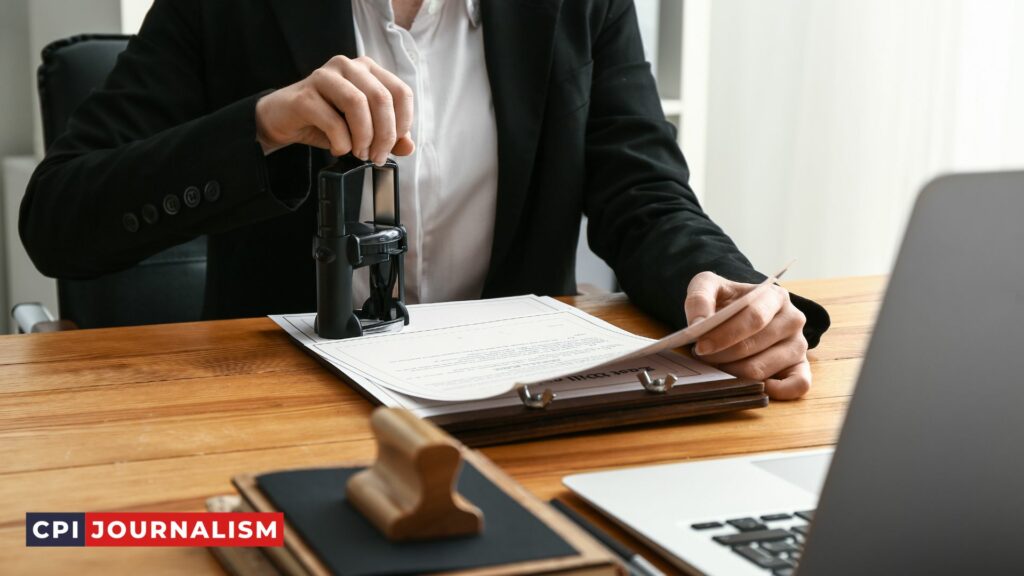
Here are some examples of right of publicity violations that journalists should be aware of:
1. Publishing Unauthorized Photos: Publishing unauthorized photos of an athlete, team, or sports figure can be a violation of their right of publicity. It is important to obtain permission from the individual or organization before publishing any photos.
2. Using an Athlete’s Name or Likeness for Advertising: Using a sports figure’s name or likeness for advertising purposes without their permission is a violation of the right of publicity. This includes using their name or likeness to endorse a product or service.
3. Wrongful Endorsement: When a journalist endorses a product or service without the knowledge or consent of the athlete, team, or sports figure, this can be a violation of their right of publicity.
4. Unauthorized Use of an Athlete’s Story: Journalists should always obtain permission before using an athlete’s story in their work. This includes using any quotes, biographical information, or other personal details without the athlete’s permission.
By understanding the legal implications of right of publicity violations, sports journalists can protect themselves and their sources from potential legal issues.
Iv. Defamation
As a sports journalist, it is important to be aware of the legal considerations associated with defamation. Defamation is a form of personal injury that arises when false statements are made that cause injury or damage to the reputation of an individual or entity.
Defamation can be either libel or slander. Libel is the written or permanent form of defamation and slander is the spoken form of defamation.
In order to successfully prove a claim of defamation, the plaintiff must show that the defendant made a false statement about the plaintiff that was published to a third party.
The plaintiff must also show that the statement caused harm to their reputation or caused them to suffer emotional distress.
To limit the risk of being sued for defamation, it is important for sports journalists to ensure that their stories are accurate and fact-checked. It is also important to avoid making statements that could be seen as defamatory.
Furthermore, it is important to obtain consent from any persons mentioned in the story before publishing it. Lastly, it is important to make sure the story is published in a professional manner and not sensationalized.
By following these guidelines, sports journalists can ensure that they are not exposed to legal risks associated with defamation.
A. What Is Defamation?
Defamation is a false statement communicated to a third party which harms the reputation of an individual, organization or entity.
It is a civil wrong or a tort and is actionable in court. Defamation is also referred to as “libel” if it is in writing or “slander” if it is spoken.
In order to constitute defamation, the statement must be false and must cause harm to the person or entity it is about. The statement must be of a kind that would lead the third party to think less of the person or entity.
In order to prove defamation, the victim must prove that the statement was false and that it was communicated to a third party.
In addition, the victim must prove that the false statement was made with the intention of causing harm to their reputation or with reckless disregard for the truth.
It is important for upcoming journalists to understand the importance of verifying facts before publishing or broadcasting.
Defamation can have serious consequences for both the publisher and the victim. It is therefore important to be very careful when communicating information to the public.
B. How Does Defamation Affect Sports Journalists?
As a seasoned sports journalist, I can attest that defamation can have a major impact on sports journalists. Defamation can limit the journalist’s ability to report on certain stories, as it can open them up to potential legal action.
Furthermore, it can lead to a decrease in the credibility of the journalist, as their reputation can be harmed if they are accused of defamation. This can lead to fewer job opportunities and fewer readers.
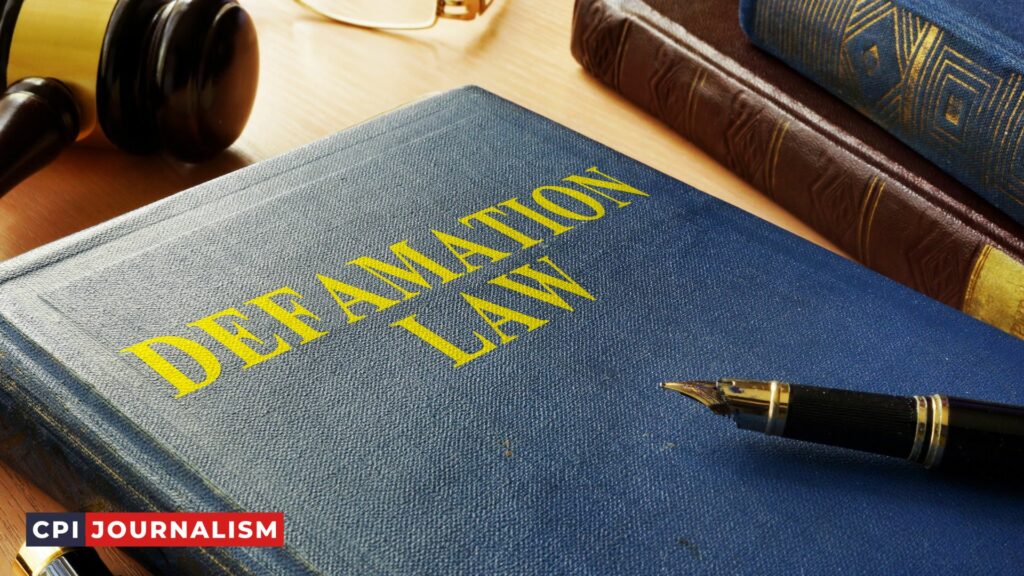
Defamation can also impact the journalist’s personal life. They may face public scrutiny or judgement from their peers, which can cause emotional distress.
This can lead to a decrease in the quality of their work, as well as a decrease in their job satisfaction. Additionally, it can cause stress and anxiety, which can lead to physical ailments.
It is important for sports journalists to be aware of the risks associated with defamation. They should be mindful of the laws that are in place to protect them, and take steps to verify the accuracy of their reporting before publishing.
It is also important to seek legal advice if they are accused of defamation, as this can help protect them from potential legal action.
C. Examples of Defamation by Sports Journalists
Sports journalists are often subject to scrutiny and criticism due to their close access to athletes, teams, and other powerful figures in the sports world.
As a result, it is important for sports journalists to be aware of the legal considerations of defamation when reporting the news.
Defamation is an act of damaging a person’s reputation or character by making false, malicious, or derogatory statements about them. Defamation can be either written (libel) or spoken (slander).
Examples of defamation by sports journalists include:
1. Making false or inaccurate claims about a team, athlete, or coach, such as saying that a coach has a history of cheating or that a team’s performance is declining due to mismanagement.
2. Publishing false or exaggerated claims about an athlete’s personal life or off-field behavior, such as making claims that an athlete has a substance abuse problem or has been involved in criminal activity.
3. Publishing unverified claims about an athlete or team, such as claiming that a team is ready to make a major trade or that an athlete has an undisclosed injury.
4. Attacking an athlete’s or team’s character or ability, such as calling an athlete lazy or saying that a team is overrated.
Sports journalists must be aware of the potential legal consequences of publishing false or misleading statements about a person or team.
In addition, sports journalists should make sure to always verify the accuracy of any claims they make before publishing them.
V. Privacy
As a sports journalist, it is important to understand the laws and regulations surrounding privacy. The law of privacy protects an individual’s right to be left alone and to control the dissemination of their personal information.
When it comes to sports journalism, it is important to be aware that athletes, teams and other sports-related organizations are often highly sensitive to privacy issues.
As a sports journalist, you should take great care to ensure that you are not infringing on any individual’s right to privacy.
When reporting on a sports story, always make sure that you are not disclosing any information that could be considered private or confidential. This includes any medical information, personal information, or financial information.
In addition, you should also be aware that some states have laws which protect the names and images of athletes, teams, and other sports-related organizations.
If you are reporting on a sports story, you should always obtain the permission of the individual, team, or organization before using their name or photo in your story.
Finally, it is important to make sure that you are not infringing on any copyright laws. When you are writing a sports story, it is important to make sure that you are not using any photos, music, or other copyrighted material without permission.
By understanding and respecting the laws and regulations surrounding privacy, you can ensure that you are writing your sports stories in a way that is both accurate and legal.
A. What Is Privacy?
Privacy is an important right that all individuals have in their lives. It is the right to keep certain information or activities private, or to choose when and how to share them with others.
Privacy is a fundamental human right and it is important for the protection of personal autonomy, autonomy over decisions about our lives, and for the protection of our personal information.
Privacy is a concept that has evolved over time, particularly in light of new technologies. As technology has advanced, so have the tools and techniques used to protect it.
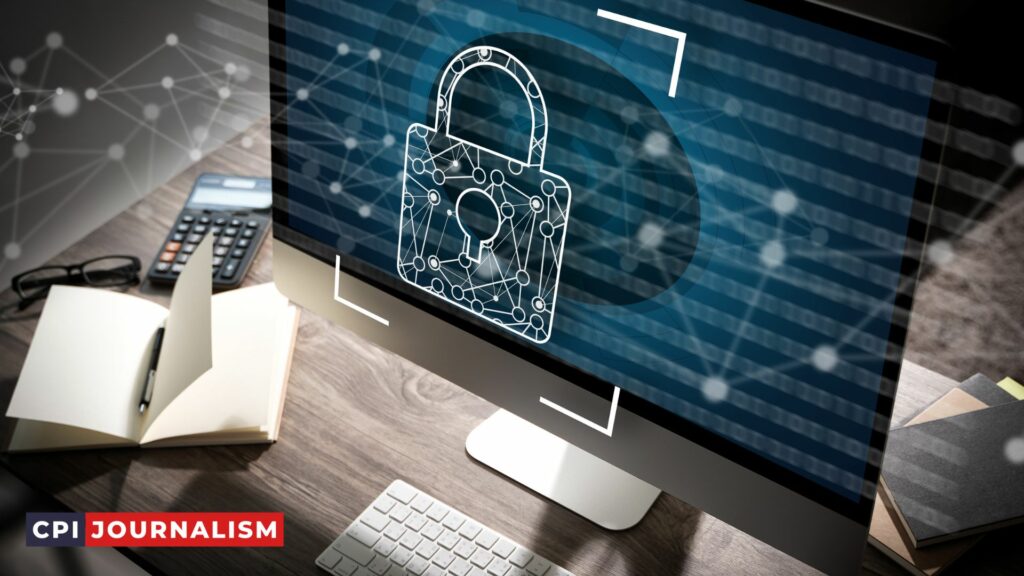
At its core, privacy is about control. It is about having control over how and when we share our personal information. It is also about having control over who has access to our data and how they use it.
As new technologies have emerged, such as the internet, social media, and other digital platforms, the need to protect our privacy has grown.
Privacy protects us from intrusion into our personal lives, and it also ensures that our data is not used for purposes that we did not agree to. It is important for ensuring that our data is secure, and that we are not subject to data breaches or misuse.
We should have the right to decide when and how our data is used, and what type of access is allowed.
Privacy also protects our freedom of expression. It gives us the power to determine what information we want to share and how we want it shared.
It also helps to maintain our anonymity, allowing us to express ourselves without fear of retribution or judgment.
Overall, privacy is a fundamental human right that is essential for protecting our autonomy, our data, and our freedom of expression. It is an important right that should be respected and protected.
B. How Does Privacy Affect Sports Journalists?
As a sports journalist, privacy is a very important issue to consider. It is necessary to protect the privacy of both the athletes and the sources you are interviewing.
Without privacy, athletes may not be comfortable with giving honest interviews and may be reluctant to cooperate with media coverage. This can significantly limit the scope of stories journalists can report on.
It is also essential to protect the privacy of your sources. Without privacy, sources may be hesitant to provide information, which can hinder the quality of your story.
Additionally, sources may be reluctant to trust you if their information is not kept confidential. This can lead to a lack of trust in the media, which could have an overall negative effect on the industry.
Furthermore, privacy is necessary to protect the integrity of the story. Without privacy, there is a greater risk of sources being misquoted or stories being misrepresented. This could have serious implications for the accuracy of the story and the reputation of the journalist.
Ultimately, it is important for sports journalists to take privacy seriously. It is essential to protect the privacy of the athletes, sources, and the integrity of the story. Without privacy, journalists may not be able to produce quality stories and may not be trusted by their sources.
C. Examples of Privacy Violations by Sports Journalists
Sports journalists are expected to adhere to the highest standards of ethical journalism, ensuring that the public is informed in an accurate and responsible manner.
Unfortunately, there have been numerous cases of sports journalists violating the privacy of athletes, teams, and/or organizations.
Here are a few examples of privacy violations made by sports journalists:
1. Publishing Private Information: Sports journalists have been known to publish private information about athletes, teams, and/or organizations without their permission.
This could include sharing confidential medical information, financial records, or other private details that the athlete, team, and/or organization may not want made public.
2. Unauthorized Interviews: Sports journalists have also been known to conduct unauthorized interviews with athletes, teams, and/or organizations without their permission.
This violates the privacy of the athlete, team, and/or organization, as well as the journalist’s professional responsibility to obtain permission before conducting any interview.
3. Unauthorized Photos: Sports journalists have also been known to take unauthorized photos of athletes, teams, and/or organizations without their permission. This can be especially problematic if the photo is taken in a private or sensitive location.
4. Violating Embargoes: Some sports organizations will put embargoes in place to limit the information that can be released to the public. Sports journalists have been known to violate these embargoes, resulting in a breach of the organization’s privacy.
By understanding the importance of privacy and adhering to ethical journalistic practices, sports journalists can help ensure that the information they share with the public is accurate and responsible.
VI. Conclusion
As a sports journalist, it is essential to understand the legal considerations for your profession. While the legal requirements may vary among different countries, there are some common elements that should be taken into account when covering sports-related stories.
It is important to be aware of defamation laws, copyright laws, and media regulations. Being mindful of these laws and regulations can help you to protect yourself and your organization from potential legal issues.
Additionally, it is important to understand the ethical considerations associated with sports journalism. Knowing how to ethically report on sports-related stories can help to ensure that you are producing reliable, accurate, and trustworthy content.
By taking the time to understand the legal and ethical considerations of sports journalism, you can help to ensure that you are producing high-quality work that meets the standards of your audience.
A. Summary of Legal Considerations for Sports Journalists
Sports journalists have a unique set of legal considerations to take into account when crafting their stories. As a sports journalist, it is important to remain aware of the regulations that pertain to the industry, as well as the rights and responsibilities of the athletes, teams, and organizations involved.
Here is a summary of the key legal considerations for sports journalists:
1. Copyright and Trademark Law: It is important to ensure that all content used in articles, including photographs and videos, has been legally obtained and used in accordance with copyright and trademark law. Furthermore, it is important to properly credit the original source of any content used.
2. Libel and Defamation: Libel and defamation are two of the most common legal issues faced by journalists. It is important to exercise caution when reporting on stories involving individuals, teams, and organizations, as making false or damaging statements can lead to legal action.
3. Privacy: Privacy of athletes, teams, and organizations should be respected, as making public or unauthorized access to private information can lead to legal action.
4. Access to Information: Many states have laws in place that dictate who has access to certain public information, such as police records and court documents. It is important to familiarize oneself with these laws in order to ensure that all information is legally obtained.
5. Employment Law: It is important to be aware of employment laws when dealing with athletes, teams, and organizations. This includes understanding the requirements for contracts and other agreements, as well as the rules regarding the termination of an employment agreement.
By understanding the legal considerations for sports journalists, it is possible to create well-crafted stories that adhere to the appropriate laws and regulations.
It is also important to be aware of any changes to the laws and regulations in order to stay up-to-date on the legal considerations for the industry.
B. Final Thoughts on Legal Considerations for Sports Journalists
As a sports journalist, it is critical to be aware of the legal implications of your work. It is important to understand the laws and regulations that govern the industry and to ensure that you are following them to the letter.
Furthermore, understanding the nuances of libel and defamation law, copyright law, and privacy law can help you to create content that is both accurate and legally compliant.
Most importantly, remember that no matter how you choose to approach a story, you should always strive to be accurate and fair.
When in doubt, seek legal advice or contact the appropriate authorities. By taking the time to familiarize yourself with the legal considerations for sports journalists, you can help to ensure that your content is compliant, ethical, and legal.

